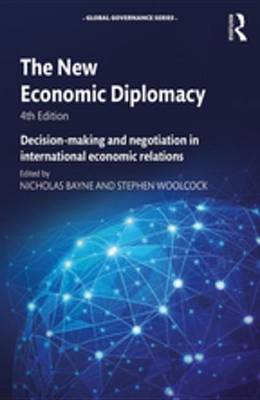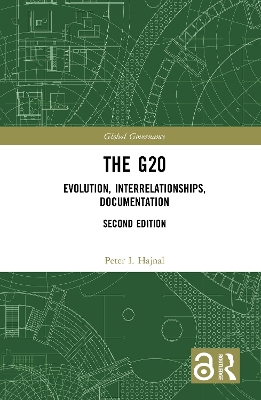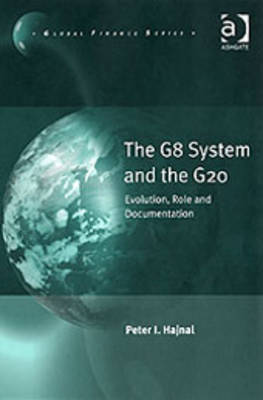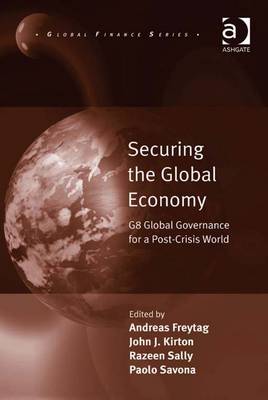Global Finance
4 total works
The New Economic Diplomacy
The New Economic Diplomacy explains how states conduct their external economic relations in the 21st century: how they make decisions domestically, how they negotiate internationally and how these processes interact. Although the previous edition, published in 2011, was able to reflect the impact of the financial crisis and the immediate reaction to it, a lot has happened since then, and the atmosphere of economic diplomacy has darkened.
To capture the emergence of new trends and the intensification of old ones, the salient features of this new edition are:
- The advance of China and other emerging powers at the expense of G7 governments, despite some setbacks;
- Much greater activity in negotiating regional and plurilateral trade agreements, while the multilateral system struggles;
- The persistence of problems exposed by the financial crisis, notably the long-running euro-zone crisis.
- The interaction between domestic and external forces: the balance has shifted towards the domestic axis, with international agreement more difficult to achieve. This edition goes further in comparing the practice of different players, to reflect the greater diversity of economic diplomacy.
Based on the authors' work in the field of International Political Economy, it is suitable for students interested in the decision-making processes in foreign economic policy, including those studying international relations, government, politics and economics. It will also appeal to politicians, bureaucrats, business people, NGO activists, journalists and the informed public.
The emergence of the G20 was the result of calls for full inclusion of major developing and other systemically important countries and to reflect new global economic and political realities. The growth of Chinese power, growing significance of other major developing countries and new concerns concerning anti-globalization and rising protectionism in the West have all resulted in important changes to the dynamics of the institution. The suspension of Russia’s membership in the G8 has also necessitated a change in G7/G20 dynamics and the G20’s processes, agenda priorities and role in global governance. Providing a historical overview and analysis of the evolving agenda, methods of performance evaluation, relationship with structured international organizations and other external actors, Hajnal’s text is an authoritative work of history, analysis and reference on the G20 and also G7/G8/G20 reform.
This book is an essential source for researchers and students focusing on the G20, international organizations and global governance, and more generally for scholars in the fields of political science, economics, and finance.
The Group of Eight has become a central actor in global governance with a steadily expanding role and agenda. The leaders' summits remain at the apex of the G8 system, but the leaders' work is complemented by intensifying and expanding networks of ministerial fora as well as various task forces and expert groups. Some of these entities, initially launched by the leaders, have taken on a life of their own with an agenda that diverges from the main concerns of the summits.
Following on from Hajnal's acclaimed book The G7/G8 System, this volume discusses the origins, characteristics, evolution, role and agenda of the G7 and G8 system, including a systematic survey of its components. It introduces the major debates about the G7 and G8, looks at proposals to reform the G8-G20 and provides a detailed study of the complex, elusive and changing patterns of documentation of the broader G8-G20 system, including electronic information.
Securing the Global Economy
Securing the Global Economy explores how and why the G8 and other institutions of global governance deal with increasingly comprehensive and complex economic-security connections. These connections are explored from an interdisciplinary perspective, with economists, political scientists and those in the policy world bringing their insights to bear. Moreover, this volume explores this economic-security connection from a constitutional or institutional perspective. In a classical liberal spirit, it is concerned with the organizing principles of a liberal international economic order and the framework of rules that enables it to survive and flourish. Security issues, national trade policies, the multilateral trade system and the detailed technical issues they subsume are analysed from this higher vantage point. This is thus a work about global governance as a whole and at its core, rather than a problem-solving manual for a few of the issues now at centre stage. Furthermore, it applies this larger vision to the current G8 and global economic-security agenda to generate a set of policy recommendations about how the global community, through and outside the G8, can better cope with the complex interconnected challenges it now confronts. Its innovative policy recommendations are especially timely when the recent global financial crisis, economic recession and fragile recovery place great strains on the liberal economic order, while new challenges from Iran, ongoing terrorist threats and corruption make this security-economic connection critically important.



